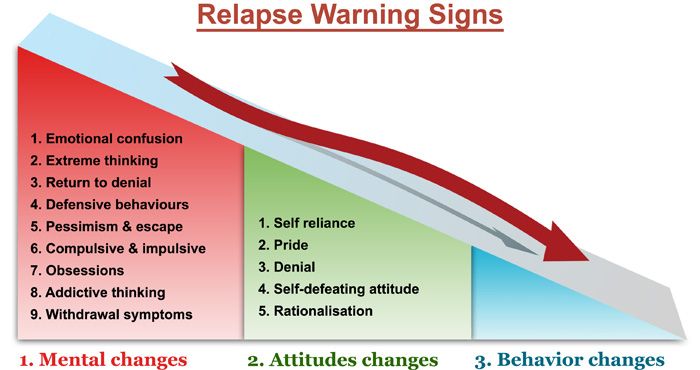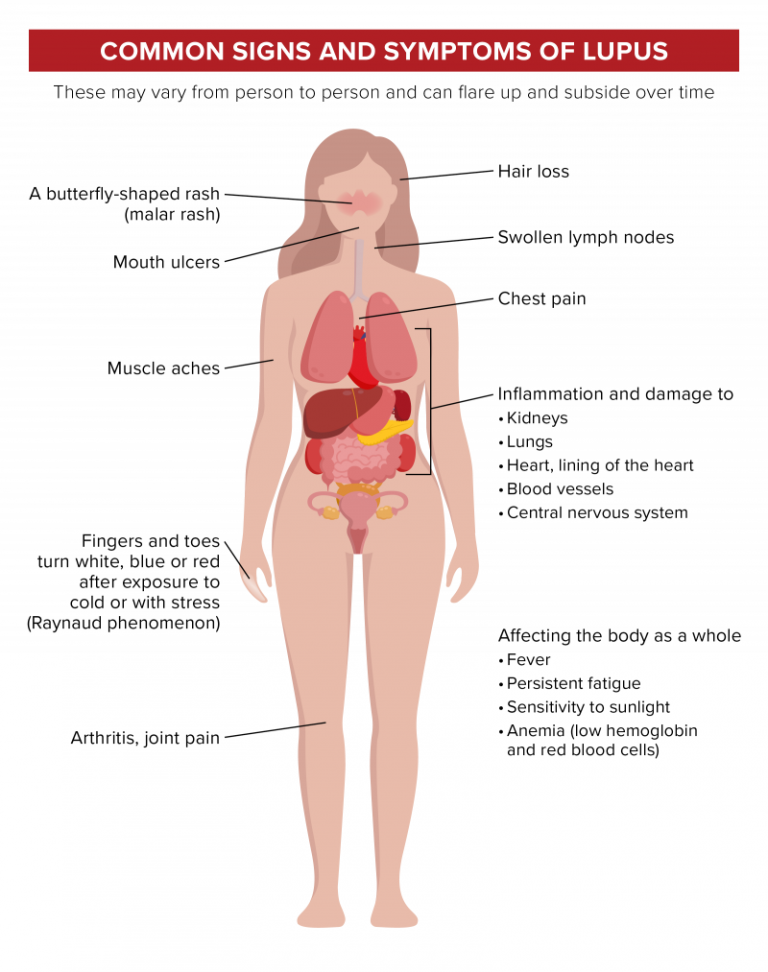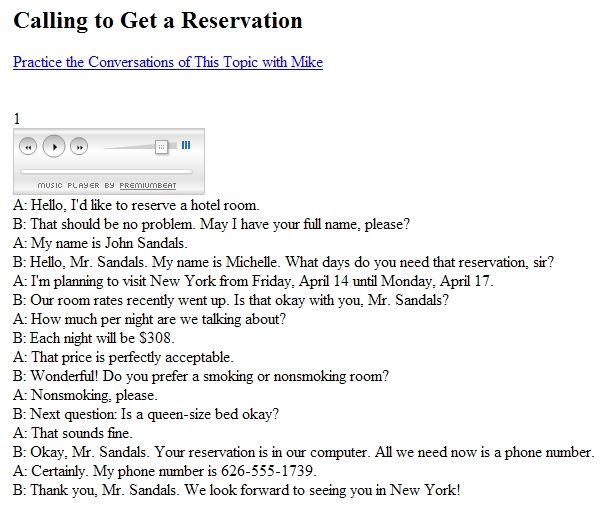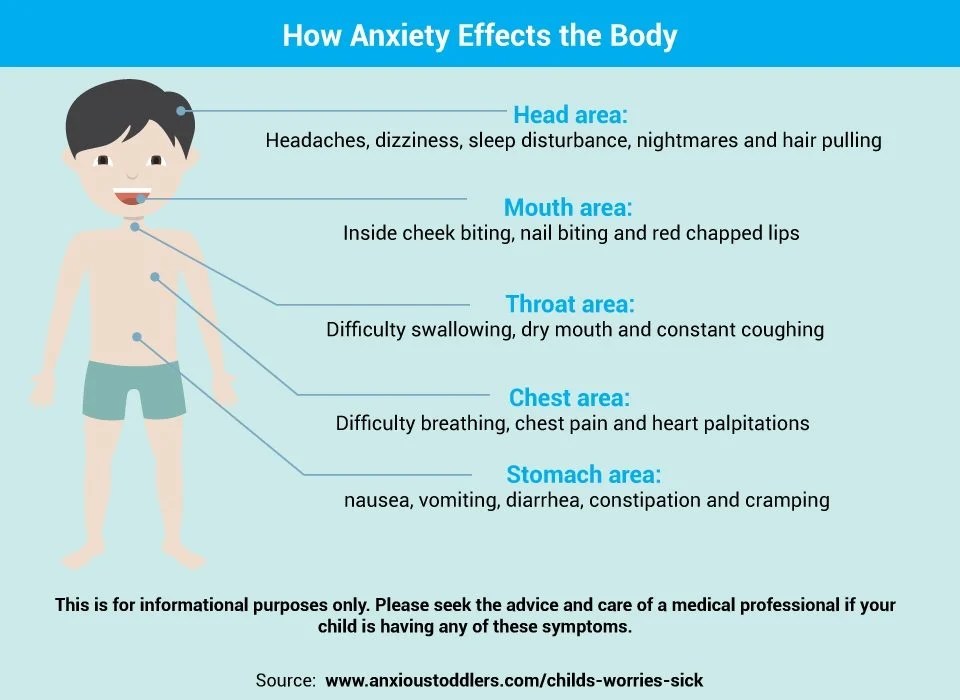How to deal with mental and emotional abuse
What It Is and Signs to Watch For
You might be familiar with many of the obvious signs of emotional abuse and manipulation. But when you’re in an abusive situation, it’s easy to miss the subtle early signs that build up to a a persistent undercurrent of abusive behavior.
Emotional abuse involves attempts to frighten, control, or isolate you. This type of abuse doesn’t involve physical violence, though it might involve threats of violence directed toward you or your loved ones. It’s characterized by a person’s words, actions, and the consistency of these behaviors. Abuse may start gradually, but it happens again and again.
People of any age or gender can abuse or experience abuse. And abuse doesn’t just happen in the context of romantic relationships. The person abusing you could be your spouse or romantic partner — but they might also be your business partner, parent, caretaker, or even your adult child.
Regardless, you don’t deserve the abuse, and it’s definitely not your fault.
Continue reading to learn how to recognize the signs of emotional abuse and get some guidance on what to do next.
Someone abusing you may use different tactics to undermine your self-esteem.
Examples include:
- Name-calling and derogatory nicknames. They’ll blatantly call you “stupid,” “a loser,” or use other insults. Maybe they use terms of “endearment” that actually highlight things you’re sensitive about — “my little nail biter” or “my chubby pumpkin” — and ignore your requests to stop.
- Character assassination. This usually involves the word “always.” You’re always late, wrong, screwing up, disagreeable, and so on. They might say these things to you, or use them to describe your behavior to others.
- Yelling. Screaming, yelling, and swearing can intimidate you and make you feel small and inconsequential. Maybe they never hit you, but they do pound their fist, throw things, or damage property.

- Patronizing. They belittle you by saying things like, “I know you try, but this is just beyond the scope of your brain.”
- Public embarrassment. They pick fights, share your secrets, or make fun of your shortcomings in public.
- Dismissiveness. You share something important to you and they reply with, “What? Who cares about that?” Body language like eye rolling, smirking, head shaking, and sighing help convey the same message.
- “Joking.” When you express discomfort with something they’ve said, they snap back, “Can’t you take a joke? Grow up.” You’re left feeling foolish and wondering whether you are, in fact, too sensitive.
- Insulting your appearance. As you head out, they stop you at the door. “You’re wearing that ridiculous outfit? No wonder you can’t get a date.” Or they constantly say you’re lucky they chose you, since they could find someone so much more attractive.

- Belittling your accomplishments. They brush off your achievements, saying they don’t matter, or claim responsibility for your successes.
- Putting down your interests. They suggest your hobby is a waste of time. “You’ll never be any good at the piano, so why do you keep trying?” Really, they’d rather you not participate in activities without them.
- Pushing your buttons. Once they find something that annoys you or makes you uncomfortable, they begin to mention it every chance they get, ignoring your requests that they stop.
Abusive behavior relates to the desire to maintain power and control. Someone abusing you might attempt to manipulate you into doing what they want you to do, often by making you feel ashamed of your inadequacies.
They may try to control you by:
- Making threats. They imply — or say outright — that they’ll fire you or report you for being an unfit parent.
 They might even say something like, “There’s no telling what I might do,” to keep things vague and leave you afraid.
They might even say something like, “There’s no telling what I might do,” to keep things vague and leave you afraid. - Monitoring your whereabouts. They want to know where you are, always, and insist you respond to calls or texts immediately. They might show up at your work or school, just to check you did actually go there.
- Spying on you digitally. They demand your passwords, or insist you go password-free, and regularly check your internet history, emails, texts, and call log.
- Gaslighting. Someone abusing you may deny that specific events, arguments, or agreements ever happened. This tactic can leave you questioning your own memory, not to mention your mental health and well-being.
- Making all the decisions. This might involve closing a joint bank account and canceling doctor’s appointments. They may insist you withdraw from school and resign from work — or do so on your behalf. Or maybe they tell you what to wear, what to eat (and how much), or which friends you can spend time with.

- Controlling your access to finances. They keep bank accounts in their name and make you ask for money. They also expect you to keep your receipts and account for every penny you spend.
- Emotional blackmailing. Someone using this tactic will attempt to get you to do things by manipulating your feelings. They might use tricky questions to “test” you, take on the role of victim, or try to guilt-trip you.
- Lecturing you constantly. After you make a mistake, no matter how minor, they catalog all of your errors with a long monologue. They describe all the ways you’ve fallen short and make it clear they consider you beneath them.
- Giving direct orders. From, “I don’t care what happened. You stay here until you get that client back, or you’re fired,” to “Stop taking the pill,” they expect you to do everything they say without question.
- Having frequent outbursts. They told you to cancel that outing with your friend, or put the car in the garage, but you didn’t.
 So, they become enraged, angrily shouting about how inconsiderate and uncooperative you are.
So, they become enraged, angrily shouting about how inconsiderate and uncooperative you are. - Feigning helplessness. They say they don’t know how to do something, hoping you’ll simply do it yourself instead of taking the time to explain it.
- Unpredictability. They explode for no clear reason, then suddenly shower you with affection. Or maybe their mood shifts from upbeat to dark and angry with little warning, leaving you never sure what to expect.
- Walking out. A partner or parent might leave a social event suddenly, so you have no way home. A supervisor might exit during a discussion about your assignment, so your questions remain unresolved.
- Stonewalling you. During a disagreement or conflict, they shut down, refusing to respond to your attempts to communicate.
People who abuse others often try to create a hierarchy that puts them at the top and you at the bottom.
Examples might include:
- Jealousy.
 They accuse you of flirting or cheating, or say you’d spend all your time with them if you truly loved them.
They accuse you of flirting or cheating, or say you’d spend all your time with them if you truly loved them. - Using guilt. They might try to guilt-trip you into doing something by saying things like, “You owe me this. Look at all I’ve done for you,” in an attempt to get their way.
- Unrealistic expectations. They expect you to do what they want, when they want you to do it. They think you should always prioritize their needs, do things according to their standards — and you absolutely shouldn’t hang out with your friends or family if there’s any chance they might need you.
- Goading and blaming. People who manipulate and abuse typically know just how to upset you. But once you do get upset, they pin the blame back on you — after all, it’s your fault for being so sensitive and incompetent.
- Denying the abuse. When you express concerns about their behavior, they might deny it, seemingly bewildered at the very thought.
 They may even suggest you’re the one with anger and control issues, or say they only get angry because you’re such a difficult person.
They may even suggest you’re the one with anger and control issues, or say they only get angry because you’re such a difficult person. - Trivializing. When you explain how much something they said or did upset you and hurt your feelings, they accuse you of overreacting or misunderstanding the situation.
- Blaming you for their problems. When things go wrong, they always blame you. If only you’d been a more loving child, a more supportive partner, or a better parent, they might say, their life would be fantastic.
- Destroying and denying. They might throw your phone down to break it, “lose” your car keys, or destroy other important possessions, then deny it or say it happened accidentally.
Someone abusing you will generally try to get you to prioritize their needs and neglect your own.
Often, they’ll also make an effort to isolate you by coming between you and your supportive loved ones — a step which, of course, leaves you more dependent on them.
Tactics they might use include:
- Dehumanizing you. They’ll intentionally look away when you’re talking or stare at something else when speaking to you in an effort to make you feel unimportant.
- Keeping you from socializing. Whenever you have plans to go out, they come up with a distraction or beg you not to go.
- Invalidating you. They might suggest or say straight out that your needs, boundaries, and desires don’t matter to them.
- Trying to come between you and your family. They’ll tell family members you don’t want to see them or make excuses why you can’t attend family functions. Later, they might tell you that your loved ones don’t care about you or think there’s something wrong with you.
- Using the silent treatment. They might ignore your attempts at conversation in person, via text, or over the phone.
- Withholding affection. They won’t touch you, even to hold your hand or pat you on the shoulder.
 They may refuse to have any intimate contact if you offend them, or they want you to do something you don’t want to do.
They may refuse to have any intimate contact if you offend them, or they want you to do something you don’t want to do. - Shutting down communication. They might wave you off, change the subject, or simply ignore you when you want to talk about important concerns.
- Actively working to turn others against you. They might tell other people in your life, including co-workers, friends, and even your family, that you lie, have lost touch with reality, or have had an emotional breakdown.
- Denying support. When you need emotional support or help with a problem, they might call you needy, say the world can’t stop and wait on your problems, or tell you to toughen up and fix it yourself.
- Interrupting. They might get in your face when you’re in the middle of an activity and take away your phone or anything else in your hands to let you know your attention should be on them.
- Disputing your feelings.
 No matter what feeling or emotion you express, they might insist you shouldn’t feel that way. For example, “You shouldn’t be angry over that,” or “What have you got to feel sad about?”
No matter what feeling or emotion you express, they might insist you shouldn’t feel that way. For example, “You shouldn’t be angry over that,” or “What have you got to feel sad about?”
Learn more about codependency and how to overcome it.
If you believe you’re experiencing emotional abuse, trust your instincts.
Abuse is never your fault, and you don’t have to live with it
If you fear immediate physical violence, get to a safe place if you can. You can also call 911 or your local emergency services for help.
If you aren’t in immediate danger and you need to talk or find some place to go, call the National Domestic Violence Hotline at 800-799-7233. This free, confidential 24/7 hotline can put you in touch with service providers and shelters across the United States.
Find more resources here.
These tips offer a place to start:
- Don’t try to fix them. You may want to help, but it’s often difficult for abusive people to change their behavior without professional support.
 You can encourage them to work with a therapist, but they have to make the choice themselves.
You can encourage them to work with a therapist, but they have to make the choice themselves. - Avoid self-blame. Remember, you never deserve abuse, no matter what you’ve said or done. The only person responsible is the one engaging in abusive behavior.
- Prioritize your needs. Taking care of your physical and emotional needs can help you move forward to a place where you feel comfortable setting boundaries, reaching out for support, and leaving the abusive situation.
- Avoid engaging with them. Don’t reply to their text messages, phone calls, or emails. If you can’t avoid working or spending time with them, try to keep another person with you and limit your conversation to essential topics.
- Set personal boundaries. Decide how you’ll avoid responding to manipulation or getting pulled into arguments. Express those limits to the person using abuse tactics and stick to them. You might say, for example, “If you call me names, I’ll go home,” or, “If you start teasing me in public, I’ll leave.
 ”
” - Build a support network. It might feel frightening to open up about what you’ve experienced, but reaching out to loved ones and a supportive therapist can go a long way toward helping you get the support you need to heal.
- Exit the relationship or circumstance. State clearly that the relationship is over and cut all ties, if possible. Block their number and social media accounts, and ignore attempts to reach out.
- Give yourself time to heal. Take space to focus on your needs and recovery. This might involve rediscovering your sense of self, creating a new self-care routine, and talking with a therapist who can offer guidance with recovery.
Leaving an abusive relationship often proves more challenging if you’re married, have children, or have shared assets. If that’s your situation, a good next step involves seeking legal assistance.
A domestic violence advocate or mental health professional can also help you develop an exit plan to leave the relationship safely.
The following resources can also help you come up with a plan:
- DomesticShelters.org. Visit this website for educational information, a free hotline, and a searchable database of services in your area.
- Love Is Respect. This nonprofit organization offers teens and young adults a chance to chat online, call, or text with advocates.
What is Emotional Abuse?
Skip to contentPublished: September 2, 2022 Updated: October 11, 2022
Published: 09/02/2022 Updated: 10/11/2022
Emotional abuse is a pattern of behavior in relationships that purposefully controls, isolates, and/or punishes, using fear and humiliation. Emotional abuse is as harmful as other types of abuse, such as physical or sexual, but can be harder to recognize and define.1,2
Recovering from an emotional abuse can be difficult, but you don’t have to do it alone. BetterHelp has over 20,000 licensed therapists who provide convenient and affordable online therapy.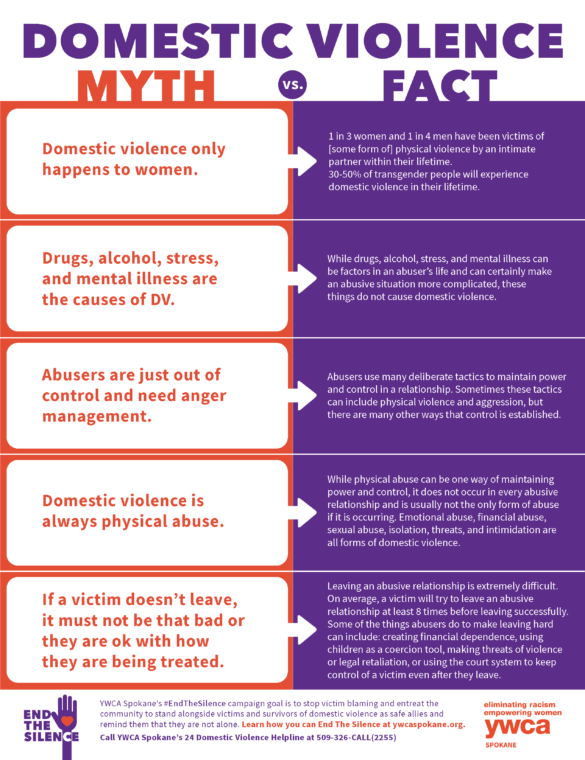 BetterHelp starts at $60 per week. Complete a brief questionnaire and get matched with the right therapist for you.
BetterHelp starts at $60 per week. Complete a brief questionnaire and get matched with the right therapist for you.
Choosing Therapy partners with leading mental health companies and is compensated for referrals by BetterHelp
Visit BetterHelp
Emotional Abuse Definition
Emotional abuse is when one person in a relationship uses their power in the relationship to shame, blame, criticize, frighten, belittle, or control another person. This may happen through words and/or behaviors. It may start small, and escalate over time. Emotional abuse is highly correlated to other types of abuse, but can also occur as the only form of abuse in the relationship.3
The perpetrator may engage in emotional abuse prior to other types of abuse. This may take place in multiple types of relationships, including with an abusive romantic partner, an abusive parent, or a teacher, coach, or friends.
How Common Is Emotional Abuse?
Emotional abuse is common and most people will experience it in some form in their lifetime. The relationship dynamics where this may take place may vary depending on individual and cultural differences. Emotional abuse can look a lot of different ways and can change over time in a relationship as well as in family dynamics with parents and adult children.
The relationship dynamics where this may take place may vary depending on individual and cultural differences. Emotional abuse can look a lot of different ways and can change over time in a relationship as well as in family dynamics with parents and adult children.
Do Emotional Abusers Become Violent?
Abusers have a variety of manipulation tactics that they use so it is likely that emotional abusers may enact physical abuse at some point. These behaviors are rooted in deep insecurities and a need for control and power over others, and the severity of the abuse may increase over time if abusers are not getting their way.
Examples of Emotional Abuse
There are many varieties of emotional abuse. The purpose of emotional abuse is to control and isolate. Over time, the emotional abuse leads an individual to doubt themselves and to lose self-esteem, which increases the ability of the perpetrator to control.
Examples of emotional abuse include:
- Controlling
- Silent treatment
- Name calling
- Gaslighting
- Shaming
- Blaming
- Hoovering
- Withholding affection
- Threatening
- Invalidating
- Guilt-tripping
- Accusing
- Humiliation
Normal Conflict vs Emotional Abuse
All relationships have conflict, and having healthy conflict can strengthen a relationship and lead to improved communication. People can disagree and resolve conflict without causing a rift in the relationship, and relationships often benefit from a set of guidelines to fighting fairly. Emotional abuse is outside of the realms of typical conflict.
People can disagree and resolve conflict without causing a rift in the relationship, and relationships often benefit from a set of guidelines to fighting fairly. Emotional abuse is outside of the realms of typical conflict.
All relationships have conflict at times. Emotional abuse is far from normal conflict, and involves an imbalance of power and an attempt to control.
Signs you may be in an emotionally abusive relationship include:
You Feel Controlled By Your Partner
Controlling is a common type of emotional abuse. A controlling husband/wife/partner limits the victim’s choice and ability to act independently. The control can be regarding time, money, actions, or abilities.
Examples of controlling behavior that is emotionally abusive include:
- Managing the finances and not allowing access to them
- Setting limits on who you can spend time with, or when/where you can spend time with people
- Tracking your activities, whether on the internet or your location via GPS
- Taking car keys
- Limiting ability to work
Your Partner Constantly Criticizes You
Criticism can be another tactic of emotional abuse. Consistent criticism can erode a person’s confidence and sense of self. Through the criticism, the victim may slowly lose the ability to trust themselves and their sense of what is happening. Emotionally abusive criticism is different from feedback, and it is not constructive.
Consistent criticism can erode a person’s confidence and sense of self. Through the criticism, the victim may slowly lose the ability to trust themselves and their sense of what is happening. Emotionally abusive criticism is different from feedback, and it is not constructive.
Examples of emotional abuse related to criticism include:
- Name calling
- Diminishing accomplishments
- Criticizing actions, points of view, or beliefs
- Put-downs
- Character attacks
There Are Patterns of Accusing & Denial
Accusing and denial may also be present in emotionally abusive relationships. Accusing refers to alleging that the victim has done something wrong, such as cheating. The accusation serves to put the victim on the defensive, and may even lead them to question themselves. Denying refers to the perpetrator dismissing the validity of their behavior and/or actions.
Examples of this type of emotional abuse include:
- Denying the abuse
- Trivializing the other person’s feelings
- Gaslighting
- Accusing the victim of false transgressions such as abuse or infidelity
Your Partner Sets Unrealistic Expectations of You
Emotional abusers may have unrealistic expectations of you including:
- Always finding something wrong with you
- Consistently placing their needs ahead of yours
- Not giving you autonomy in any decision or action
- Believing that you should agree with them always
- Continuously making impossible requests of you
Your Partner Uses Emotional Blackmail Against You
Emotional abusers may also emotionally blackmail you. Emotional blackmail is when an abuser attempts to control your thinking and behaviors by appealing to your emotions and manipulating you to behave in a way they want. This can look really subtle, however it can leave you feeling guilty and ashamed of yourself. It can look like guilt-tripping, dissatisfaction, shaming, etc.
Emotional blackmail is when an abuser attempts to control your thinking and behaviors by appealing to your emotions and manipulating you to behave in a way they want. This can look really subtle, however it can leave you feeling guilty and ashamed of yourself. It can look like guilt-tripping, dissatisfaction, shaming, etc.
Help For Trauma / PTSD
Talk Therapy – Get help recovering from trauma from a licensed therapist. Betterhelp offers online therapy starting at $60 per week. Get matched With A Therapist
Medication – Find out if PTSD medication is a good fit for you. Brightside offers a free assessment. Treatments start at $95 per month. Free Assessment
Guided Psychedelic Journeys – Ketamine is a prescription medication that clinicians can prescribe off-label to treat depression, anxiety, and other mental health diagnoses. Mindbloom pairs ketamine with clinician support. Find out if you’re a good candidate: Learn More
Choosing Therapy partners with leading mental health companies and is compensated for referrals by BetterHelp, Brightside, and Mindbloom.
Who Is Likely to Be Emotionally Abusive?
People who are likely to be emotionally abusive are those who may have experienced this abuse and may have learned this as a strategy growing up. Others include those who are diagnosed with antisocial personality or narcissistic personality disorder. An inability to have empathy for someone is another correlation, especially since abuse tends to escalate.
Impacts of Emotional Abuse
Experiencing emotional abuse can have serious consequences for the victim/survivor. The effects can range from internal (such as depression) to external (such as difficulties in interpersonal relationships).1 The type of effects depends on many variables, including, but not limited to, the individual’s own constitution and resiliency, the abuse experienced, the victim’s past experiences, and their support system.
Common effects of emotional abuse include:
- Trauma, including relationship PTSD
- Depression, anxiety, or other mental health concerns
- Breakdown of relationships with friends and family due to isolation
- Codependency in the relationship
- Problems at work or school due to the stress
- Questioning their own experience and ability to accurately assess
- Trauma bonding, where the perpetrator and victim have an emotional bond
Am I Being Emotionally Abused?
If you are noticing the tactics described above in your relationship, there may be emotional abuse. It is recommended to consult with a mental health professional to gain additional insight and to have an outside opinion. It can be remarkably difficult to recognize the emotional abuse, because you may have been told by your partner, directly or indirectly, that you have poor judgment and cannot be trusted. It is common to enjoy some aspects of the relationship and have fond memories of positive times, which can lead to additional confusion.
It is recommended to consult with a mental health professional to gain additional insight and to have an outside opinion. It can be remarkably difficult to recognize the emotional abuse, because you may have been told by your partner, directly or indirectly, that you have poor judgment and cannot be trusted. It is common to enjoy some aspects of the relationship and have fond memories of positive times, which can lead to additional confusion.
Common excuses people make for our abusers include:
- It’s my fault, I did something to deserve this treatment
- They are working on themselves
- I am over-reacting
- They did not mean what they said or did
- They can be so nice at times
- Regardless of the reason, emotional abuse, or any type of abuse, is never okay.
Why Do People Stay in Emotionally Abusive Relationships?
Leaving a relationship is hard, but when you are in any kind of abusive relationship, it can be hard to break the cycle.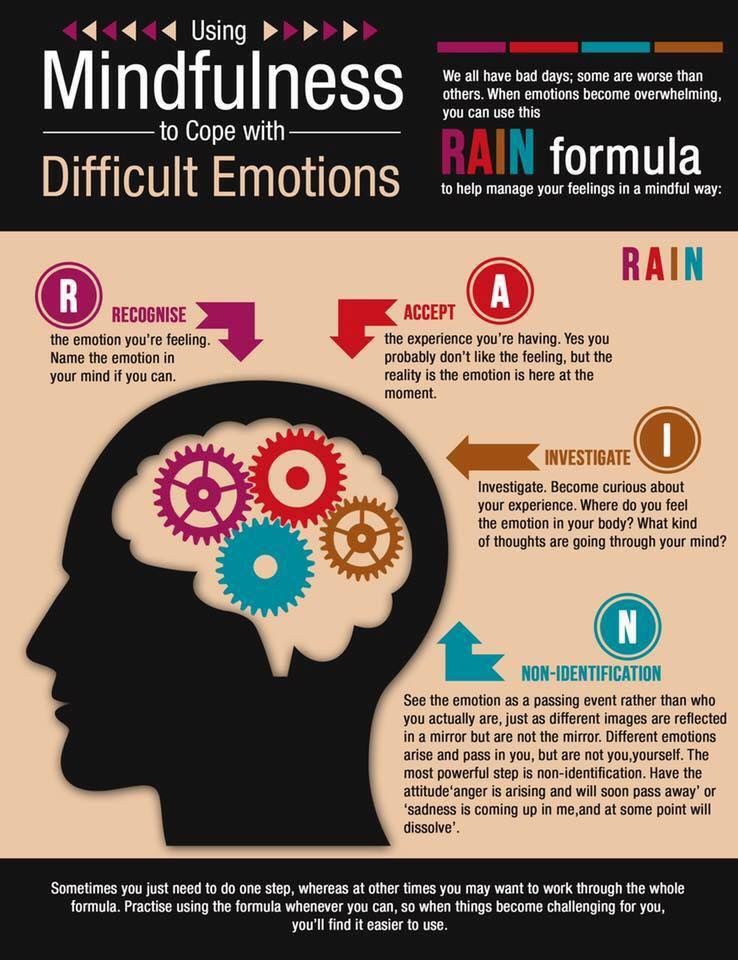 The cycle of abuse can condition the brightest people to believe the messages that come from their abuser. Abusers are masterful manipulators and will go to the depths of the earth to continue to have access to you to abuse you. It can be hard to leave after feeling worn down, and it can be confusing to know where to start if one is dependent on the abuser for housing or financial support.
The cycle of abuse can condition the brightest people to believe the messages that come from their abuser. Abusers are masterful manipulators and will go to the depths of the earth to continue to have access to you to abuse you. It can be hard to leave after feeling worn down, and it can be confusing to know where to start if one is dependent on the abuser for housing or financial support.
Abusers also often threaten their victims if they signal that they want to leave–it can pose life-and-death consequences, so it can seem safer to stay because the fear instilled is very real.
How to Deal With Emotional Abuse
Dealing with emotional abuse, both during and after the relationship, can be tremendously difficult. Emotional abuse can erode your sense of self, making it harder to trust your own judgment. Help from a mental health professional is key.
In a current relationship, there may be rare times where an individual briefly engages in emotional abuse but then is able to acknowledge the abuse and shift their behavior. However, this is the exception and not the rule. For victims of abuse, it may be tempting to believe this is the case, but recurrence of abusive behavior is common.5
However, this is the exception and not the rule. For victims of abuse, it may be tempting to believe this is the case, but recurrence of abusive behavior is common.5
Establish & Stick to Firm Boundaries
When you sense that your abuser is going to get angry and you can anticipate that something may happen, stay vigilant. Set boundaries and make sure that you feel safe. When you sense this is happening, plan to have reasons so you can leave the house. Be ready with excuses that will be believed both during the day and at night.
Make Yourself a Priority
Have a safe space you can retreat to. It’s important to feel safe so having a place where you can go, whether it’s in the home or outside the home, is going to be very helpful for you while you maintain your stance. You matter and your feelings matter, so making sure you are honoring yourself is important.
Build a Network of Support
Having friends, a therapist and relatives outside of the immediate family can be very helpful for you as you will need a lot of support when dealing with emotional abuse. People who support you and give you unconditional love is something that will help keep you going and help you take care of yourself.
People who support you and give you unconditional love is something that will help keep you going and help you take care of yourself.
Don’t Blame Yourself
Give yourself some compassion and grace. Be kind to yourself since the abuser is already being very negative towards you. Being gentle with yourself and cultivating self-love is critical when dealing with emotional abuse.
Create an Exit Plan
Make sure you have a packed bag with the essentials that you can grab and leave the house with, including a key, car keys, clothes, cash, phone numbers, documents, etc. Asking a friend or relative to keep copies of all of these is important as well. Make sure you have access to the location you are fleeing to, whether that is a shelter or a friend’s house (a key hidden in a specific spot) so you are not stuck without a place to go to.
If you fear for your safety, contact a domestic violence hotline or local authorities. You can create a safety plan which can outline a way to minimize harm and leave as safely as possible. 6
6
Find a Therapist for Yourself
When there is active abuse in a relationship, individual therapy is recommended instead of couples therapy. Couples therapy is not recommended because what happens in the therapy room may lead to abuse outside of therapy. For this reason, the therapy cannot be safe or effective. It is recommended that both parties first engage in individual therapy. There are structured programs for perpetrators of abuse that may be of assistance. These can often be found through a local domestic violence program.
Abuse of any form can be tremendously difficult to cope with, and can lead to long-term issues. Finding the right therapist can allow you to explore if what is happening is emotional abuse, and help you to take steps to leave a relationship. You can heal from this experience and develop new ways of being in a relationship.
What Doesn’t Work With Emotional Abuse
What will not work with abusive relationships of any kind is couples therapy, as that can create space for the abuser to learn more information to use against you. It can be really hard to trust in the therapy process if there is trauma associated with therapy. Couples therapy can be effective for those in a relationship where both parties are holding themselves accountable to better conflict management, however the abuser will not take any ownership of their role—which is what makes couples therapy really dangerous emotionally and physically for the abusers victim.
It can be really hard to trust in the therapy process if there is trauma associated with therapy. Couples therapy can be effective for those in a relationship where both parties are holding themselves accountable to better conflict management, however the abuser will not take any ownership of their role—which is what makes couples therapy really dangerous emotionally and physically for the abusers victim.
Additional Resources
Education is just the first step on our path to improved mental health and emotional wellness. To help our readers take the next step in their journey, Choosing Therapy has partnered with leaders in mental health and wellness. Choosing Therapy may be compensated for referrals by the companies mentioned below.
BetterHelp (Online Therapy) – Trauma and abuse can leave a lasting impact. Therapy can help with recovery. BetterHelp has over 20,000 licensed therapists who provide convenient and affordable online therapy.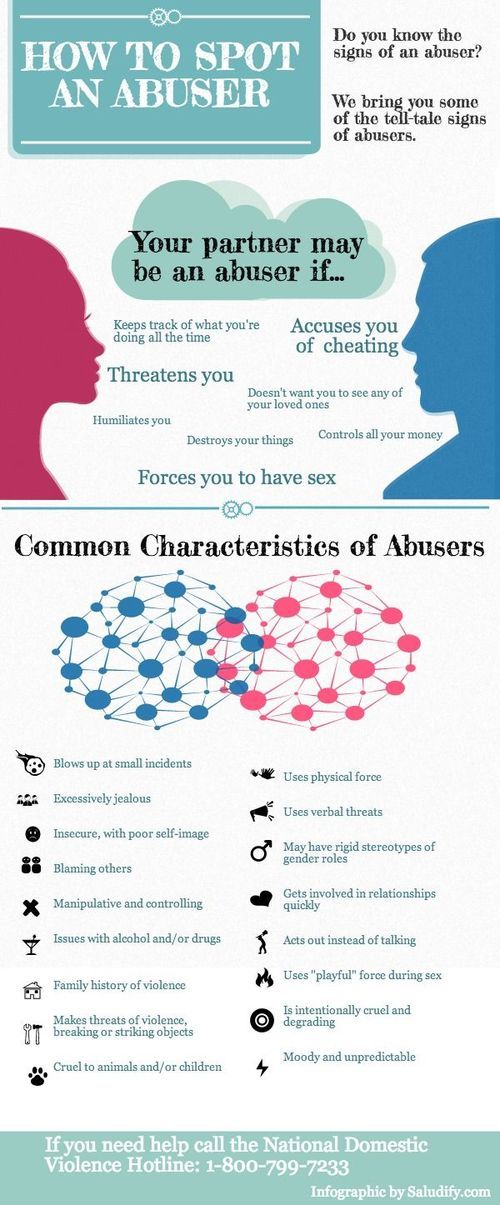 BetterHelp starts at $60 per week. Complete a brief questionnaire and get matched with the right therapist for you. Get Started
BetterHelp starts at $60 per week. Complete a brief questionnaire and get matched with the right therapist for you. Get Started
Brightside Health (Online Therapy & Psychiatry) – If you’re struggling recovering from trauma, therapy and medication can make a difference. Brightside Health treatment plans start at $95 per month. Cigna and Aetna accepted. Free Assessment
Hims / Hers (Online Psychiatry) – If you’re living with PTSD, finding the right medication match may make all the difference. Get FDA approved medication prescribed by your dedicated Hims / Hers Healthcare Provider and delivered right to your door. Plans start at $25 per month (first month). Get Started
Choosing Therapy partners with leading mental health companies and is compensated for referrals by BetterHelp, Brightside, and Hims / Hers
For Further Reading
- The Hotline: Domestic Violence Resources
- Resources by State for Violence Against Women
- National Domestic Violence Hotline’s guide to safety planning
6 sources
Choosing Therapy strives to provide our readers with mental health content that is accurate and actionable. We have high standards for what can be cited within our articles. Acceptable sources include government agencies, universities and colleges, scholarly journals, industry and professional associations, and other high-integrity sources of mental health journalism. Learn more by reviewing our full editorial policy.
We have high standards for what can be cited within our articles. Acceptable sources include government agencies, universities and colleges, scholarly journals, industry and professional associations, and other high-integrity sources of mental health journalism. Learn more by reviewing our full editorial policy.
-
Dye, H.L. (2020). Is Emotional Abuse As Harmful as Physical and/or Sexual Abuse?. Journal of Child Adolescent Trauma. 13, 399–407. https://doi.org/10.1007/s40653-019-00292-y
-
Rees C. A. (2010). Understanding emotional abuse. Archives of disease in childhood, 95(1), 59–67. https://doi.org/10.1136/adc.2008.143156
-
Gondolf EW, Heckert DA, Kimmel CM (2002). Nonphysical abuse among batterer program participants. Journal of Family Violence. 17, 293–314. https://link.springer.com/article/10.1023/A:1020304715511
-
Serrata, J. (2017). Cycles of abuse. In K. Nadal (Ed.), The SAGE encyclopedia of psychology and gender (pp.
 419-422). Thousand Oaks, CA: SAGE Publications, Inc. doi: 10.4135/9781483384269.n136
419-422). Thousand Oaks, CA: SAGE Publications, Inc. doi: 10.4135/9781483384269.n136 -
Murphy, C.M. (1994). Treating perpetrators of adult domestic violence. Maryland Medical Journal. Oct;43(10) 877-883. https://pubmed.ncbi.nlm.nih.gov/7808186/
-
Goodkind, J. R., Sullivan, C. M., & Bybee, D. I. (2004). A Contextual Analysis of Battered Women’s Safety Planning. Violence Against Women. 10(5), 514–533. https://doi.org/10.1177/1077801204264368
update history
We regularly update the articles on ChoosingTherapy.com to ensure we continue to reflect scientific consensus on the topics we cover, to incorporate new research into our articles, and to better answer our audience’s questions. When our content undergoes a significant revision, we summarize the changes that were made and the date on which they occurred. We also record the authors and medical reviewers who contributed to previous versions of the article.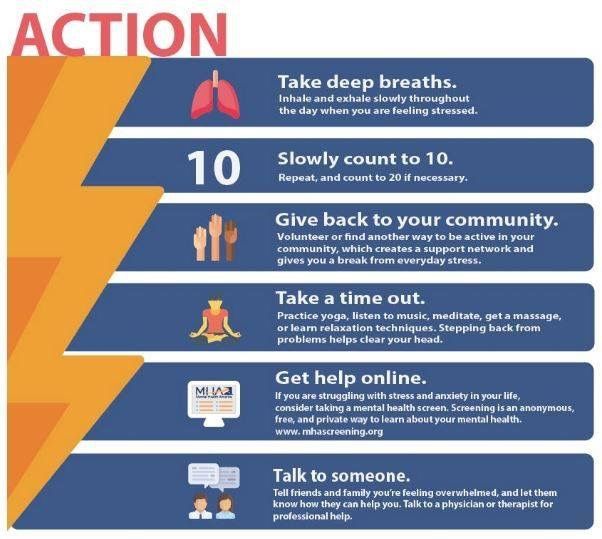 Read more about our editorial policies here.
Read more about our editorial policies here.
-
Originally Published: January 5, 2022
Original Author: Stephanie Capecchi, LCSW
Original Reviewer: Kristen Fuller, MD -
Updated: September 2, 2022
Author: No Change
Reviewer: No Change
Primary Changes: Updated for readability and clarity. Reviewed and added relevant resources. Added “How Common Is Emotional Abuse?”, “Do Emotional Abusers Become Violent?”, “Your Partner Sets Unrealistic Expectations of You”, “Your Partner Uses Emotional Blackmail Against You”, “Who Is Likely to Be Emotionally Abusive?”, “Why Do People Stay in Emotionally Abusive Relationships?”, and “What Doesn’t Work With Emotional Abuse”. New material written by Silvi Saxena, MBA, MSW, LSW, CCTP, OSW-C and reviewed by Kristen Fuller, MD.
If you are in need of immediate medical help:
Medical
Emergency
911
Suicide Hotline
800-273-8255
If the partner does not beat, but deprives the will.
 7 Ways to Recognize Psychological Abuse
7 Ways to Recognize Psychological Abuse Moral abuse is an even more subtle topic than physical abuse. The partner does not drink, does not raise his hand to you, but deprives you of the will psychologically.
With the recognition of physical violence, modern people are more or less clear. Thanks to the educational work of psychologists, it is no longer a secret that violence is not necessarily sexual coercion or beatings. Keep a person at home when he wants to leave or, on the contrary, not let him in when he wants to go home; taking away keys, phone, documents or money to make it difficult for him to move around is also physical abuse. Yelling or hitting a wall/table to break your will during an outbreak of conflict is physical abuse, even if no one has even touched you (yet). An abusive partner intuitively argues very simply: rough physical actions in your presence, in front of your eyes, frighten you and paralyze your will.
But what about moral violence? There is no noise, no destruction. No punches, no slaps. No broken things, no other people's letters read without permission. How to recognize him? Let's look at the types of psychological abuse.
Let's start with the harmless. Hearing that you don't want to visit his parents again this weekend, your partner silently draws a face. The look was covered with frost, lips in a thread. He says OK. But his voice! It's like he just wrote you a ticket. Clearly, guests cannot be canceled (you guessed it).
2. Partial disregard. Filter questions according to your goals. If you cut a pancake cake, then it is striped on the cut. It also looks like "on the cut" communication with a moral abuser. Some answers are successful, others are not.
How about Friday? I missed.
— Yes, dear!
— And who is Masha Hibiscus, does she flirt with you on Facebook?
He does not answer.
— Honey, what do you want for dinner?
— Please bake my favorite sea bass with lemon and rosemary.
— Hey, why do you talk on the phone from the bathroom in the evenings with the shower on? Do you have someone?
He does not answer.
You can, of course, go for broke, wait for the meeting and ask: why do you skip uncomfortable questions? In such cases, moral rapists have other tricks.
3. Stare without comment. This is when he is the Kaa Boa, and you ... you yourself understand who.
- Dear, we could reschedule the trip out of town, I absolutely need to get to this conference for work.
In response, he looks at you without looking away.
- Did I ask something wrong?
Without blinking, he continues to pierce the bridge of your nose with his eyes.
You got scared and your question disappeared somewhere. Then, when you ask: “Are you not happy that I refused that conference, because you were so against it ...”, he will say with a yawn: “I was against it? Stop blaming me for your own mistakes." And he will be right. He didn't say he was against it. He just looked between your eyes. By the way, try to squeal that he somehow looked wrong. He will say: “Did I watch? I stood with my back to you and mixed Cointreau with a martini. Perhaps you drank too much that evening? And it's already called...
4. Gaslighting. Detective film "Gas Light" in 1948 about how a young wife became a hostage to her husband's criminal goals. He made her look crazy in the eyes of her relatives, and most importantly, made her doubt her own sanity. Gaslighting refers to the intentional "madness" of another person. The gaslighter deliberately asserts and even "proves" that the victim's psyche is flawed and cannot be relied upon. And the victim believes. Your friend does small things (like lying a little all the time) or even some big things (spending the general money on his personal climbing equipment, blackmailing you into having an abortion, or sleeping with your girlfriend). And then he says one of the phrases: “What is wrong with you?”, “Are you in a bad mood?”, “It’s not true, we agreed”, “You yourself wanted this”, “Oh, are you starting again?”, “I don’t meant it”, “You misunderstood me”, “It never happened”. In romantic relationships, gaslighters use the universal property of falling in love - regression. Are you in love and feel like a little child? So nice to submit to a wise and charismatic friend? Let him do as he sees fit, to dissolve in it - a pleasure? If your man is strong and mature, he will thank you for your trust and will only love you more. If you are dealing with a moral abuser, waking up from love, you will find yourself in a relationship where you decide nothing and where everything is against you if you do not agree with it.
And the victim believes. Your friend does small things (like lying a little all the time) or even some big things (spending the general money on his personal climbing equipment, blackmailing you into having an abortion, or sleeping with your girlfriend). And then he says one of the phrases: “What is wrong with you?”, “Are you in a bad mood?”, “It’s not true, we agreed”, “You yourself wanted this”, “Oh, are you starting again?”, “I don’t meant it”, “You misunderstood me”, “It never happened”. In romantic relationships, gaslighters use the universal property of falling in love - regression. Are you in love and feel like a little child? So nice to submit to a wise and charismatic friend? Let him do as he sees fit, to dissolve in it - a pleasure? If your man is strong and mature, he will thank you for your trust and will only love you more. If you are dealing with a moral abuser, waking up from love, you will find yourself in a relationship where you decide nothing and where everything is against you if you do not agree with it. And to the question "why is everything so?" He will say: "You yourself wanted this." And he will be right.
And to the question "why is everything so?" He will say: "You yourself wanted this." And he will be right.
5. Blackmail, shame or guilt and seduction. Your friend reports that because of a missed visit to the family nest, mom has a bad heart, dad tore his meniscus while running to the pharmacy, and he is now so upset that he doubts the prospects of your relationship. (as usual, he looks down the bridge of your nose). In this example, the whole “package” is visible: the manipulation of guilt, an attempt to shame / scare you, blackmail by breaking up a relationship. If you come to your senses and immediately promise everything that you refused yesterday, he will immediately become nice and make amends with affection, sex or a walk in your favorite park.
6. Ignoring, disappearing for the purpose of punishment. The once-famous pediatrician Benjamin Spock did not recommend going in at night to a crying baby so that he would "understand" that good babies sleep at night, and do not cry.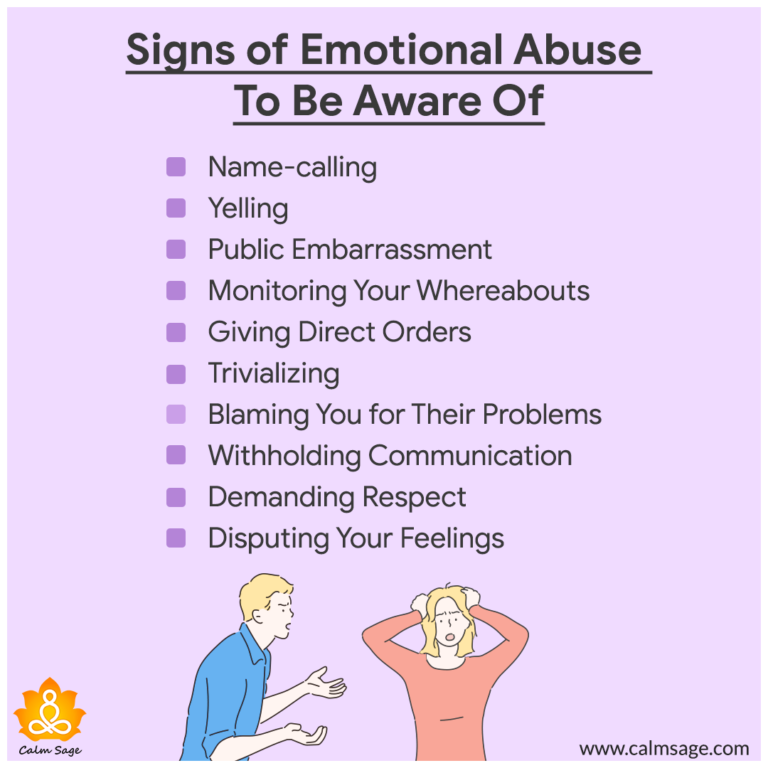 At the same time, another doctor, John Bowlby, with numbers in his hands, proved that the baby, again and again experiencing the inability to call on his mother, plunges into "anaclitic depression", from which he can even die despite complete care. We also experience a weak solution of infantile horror-despair when a dear person disappears “from the radar” without any comments. Moral abusers intuitively use this tool to intimidate their partners: “Nice girls don’t ask their lover uncomfortable questions about flirting and phone calls from the bathroom. Twitch, sort out our quarrel on the personnel. Find the mistake, guess where you were wrong. And the day after tomorrow, perhaps, I will forgive you.”
At the same time, another doctor, John Bowlby, with numbers in his hands, proved that the baby, again and again experiencing the inability to call on his mother, plunges into "anaclitic depression", from which he can even die despite complete care. We also experience a weak solution of infantile horror-despair when a dear person disappears “from the radar” without any comments. Moral abusers intuitively use this tool to intimidate their partners: “Nice girls don’t ask their lover uncomfortable questions about flirting and phone calls from the bathroom. Twitch, sort out our quarrel on the personnel. Find the mistake, guess where you were wrong. And the day after tomorrow, perhaps, I will forgive you.”
7. He is actually the victim. Remember that Sunday when you didn't want to go to visit, and he heavily hinted that he would leave you? If one day you risk outplaying him and immediately react with blackmail for blackmail, you will be amazed at the enchanting metamorphosis. Say: “Darling, I get so upset when they put pressure on me that I don’t even know what the prospects for our relationship are ...” - here you need to look at him for a long time between the eyebrows. I know a story when yesterday's moral rapist cried for two weeks without a break and littered all the messengers of his girlfriend with pleas to forgive him. It turned out he was unaware of her discomfort. When blackmail stops working, and seduction is inappropriate, he presses on pity. You soften and everything starts again.
Say: “Darling, I get so upset when they put pressure on me that I don’t even know what the prospects for our relationship are ...” - here you need to look at him for a long time between the eyebrows. I know a story when yesterday's moral rapist cried for two weeks without a break and littered all the messengers of his girlfriend with pleas to forgive him. It turned out he was unaware of her discomfort. When blackmail stops working, and seduction is inappropriate, he presses on pity. You soften and everything starts again.
The core of any violence is the object manipulation of another person. Even wrapped in politeness, seduction or cunning, violence betrays itself according to the main feature - in a relationship you are an object, not a subject, not a person, not a person with his own feelings and will. And they treat you like an object: they manipulate you functionally, sorting through different techniques, looking for master keys. If you are malleable, use soft tricks.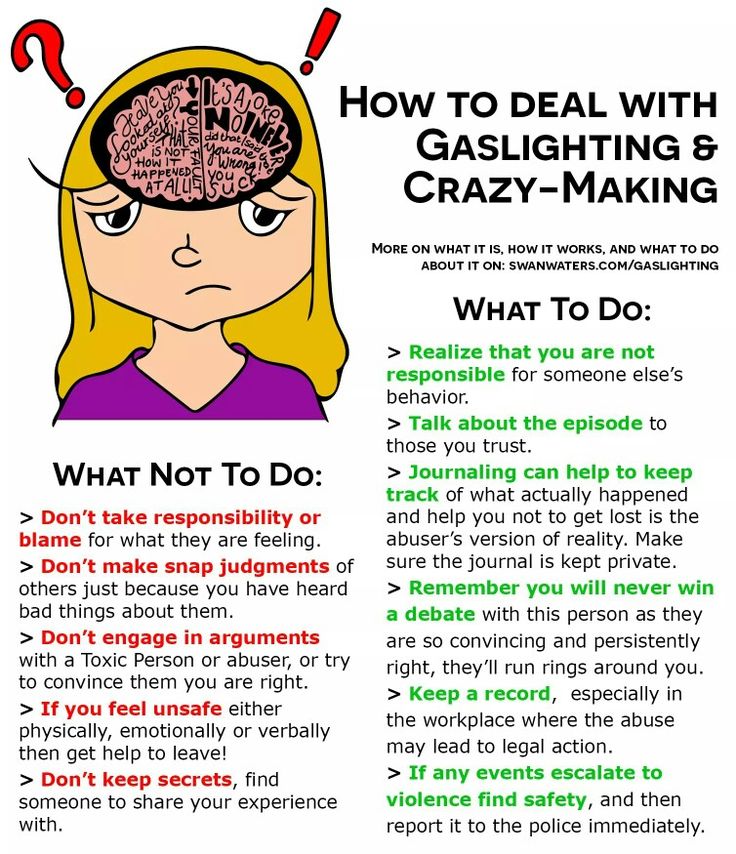 If soft ones are not effective, use pressure.
If soft ones are not effective, use pressure.
Very often a partner prone to psychological violence alternates aggression with seduction. As soon as you stop bending, he becomes charming and in a deep velvety voice asks you for reconciliation. And gives a ticket for a musical or a tour to Bali. You relax, and after a couple of days he again scolds you, drills his eyes and punishes you with silence. Against moral rapists there is only one remedy, but it is enough. You need to know exactly what you want (or do not want) and be able to say it out loud. I will talk about this in the next article.
Psychological abuse of a child | State Institution "Lyakhovichi Territorial Center for Social Services to the Population"
People express negative emotions in relation to other persons in different ways. Someone simply speaks badly about some person behind his back, and someone chooses a harsher and more unpleasant method of influence - psychological violence. Statistics show that the victim most often is not an adult, but a child. Minors are subjected to psychological violence in schools, on the street, at home. This is a very serious problem, because because of it, children's emotional behavior and development are disturbed. They have fears.
Statistics show that the victim most often is not an adult, but a child. Minors are subjected to psychological violence in schools, on the street, at home. This is a very serious problem, because because of it, children's emotional behavior and development are disturbed. They have fears.
What is psychological abuse?
Psychological violence is also called emotional. This term refers to the periodic or constant insult of the child with some unpleasant words, the humiliation of his human dignity, the utterance of threats. Often, parents have formed the desired image of children. To achieve it, mothers and fathers present their children with such requirements that they are not able to fulfill due to age opportunities. This also applies to psychological abuse.
Negative attitude towards a child has very serious consequences. He ceases to be happy. He begins to suffer from his own feelings. The child withdraws into himself, loses confidence in the people around him. In the future, all this leads to problems in building relationships. Another negative consequence is low self-esteem. For example, peers at school may call a child scary, stupid. With such thoughts about himself, he grows in the future.
In the future, all this leads to problems in building relationships. Another negative consequence is low self-esteem. For example, peers at school may call a child scary, stupid. With such thoughts about himself, he grows in the future.
Problem classification into forms
What can be considered psychological abuse of a child? Experts identify several forms of this problem. Here are the main ones:
- Degradation. With this form, children or adults influence a particular child with rude words, curses, name-calling, ridicule in front of other people.
- Ignore. This form of violence is most often observed on the part of adults - parents. They do not pay attention to their child, they are not interested in his successes and achievements. He does not feel affection, care, love. Naturally, such an attitude depresses the child.
- Repulsion. This feature of behavior is manifested by the fact that parents push their child away, constantly drive him away, that is, they make it clear that they do not need him.
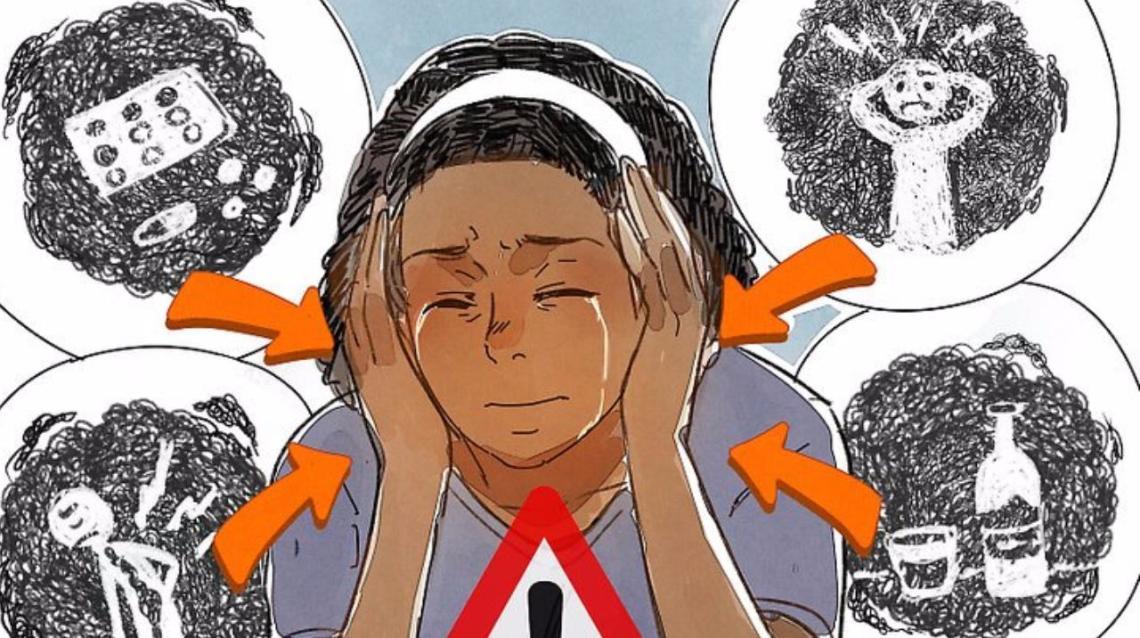
- Terrorization. In this form of abuse, the child is constantly threatened by something. They threaten him, make demands that are impossible at this age stage.
In various books on education, articles on psychological abuse of children, special attention is paid to isolation. This is another form of the problem. Its essence lies in various prohibitions (for example, you can’t communicate with peers, go for a walk with them). Sometimes, during isolation, parents resort to additional physical violence - they lock the child alone in an apartment, room, and sometimes even in a closet, beat him if he violates the prohibitions.
Signs of psychological abuse
When a child becomes a victim of psychological abuse, this can be guessed from certain behavioral patterns. The following signs are observed:
the child develops anxiety, excessive anxiety;
appetite is disturbed;
feeling depressed;
self-esteem decreases;
minor avoids peers, adults,
seeks to retire; sometimes, due to psychological abuse, a child develops such a character trait as aggressiveness;
sleep is disturbed due to negative emotions;
the child begins to pay less attention to studies, gets bad grades at school;
constant threats, insults, bullying by peers or adults lead to suicide attempts.
Already in childhood, psychological abuse causes health problems. Physical and mental development is delayed, enuresis, nervous tics, and obesity occur. Emotional abuse affects the brain. This ultimately causes a predisposition to various diseases:
coronary heart disease;
chronic fatigue syndrome;
oncological diseases, etc.
Domestic violence and advice to parents
Psychological violence in the family against a child occurs for various reasons.
First, parents may simply not love their child. It's terrifying. This reason simply does not fit in the head. How can you not love your own child, because he is the future of parents. Abusive moms and dads need to be talked to. Relatives also need help. If the parents do not come to their senses, then it is best for the child to live, for example, with his grandmother.
Another common reason is demands on the child. It is important to remember that you cannot force another person to do something. Requirements that are impossible to fulfill or that the child does not like can suppress the will and cause a depressed state.
Requirements that are impossible to fulfill or that the child does not like can suppress the will and cause a depressed state.
Commandments of wise parents
There are 4 commandments of wise parents. They can help avoid psychological abuse of a child, because mothers and fathers do not always realize that their upbringing is wrong and leads to negative consequences.
First, never try to make the best out of your child. Not all people are the same. Each person is endowed with certain abilities and capabilities.
Secondly, do not compare your child with other children, do not reproach him for not achieving something, like some of his classmates.
Thirdly, do not threaten the child, do not blackmail him. Otherwise, you will cause him only fear, shame. Your child may think that you just do not love him.
Fourthly, do not sort things out with a child in front of witnesses, even if he has done something. It is better to discuss the problem at home, find out the reason.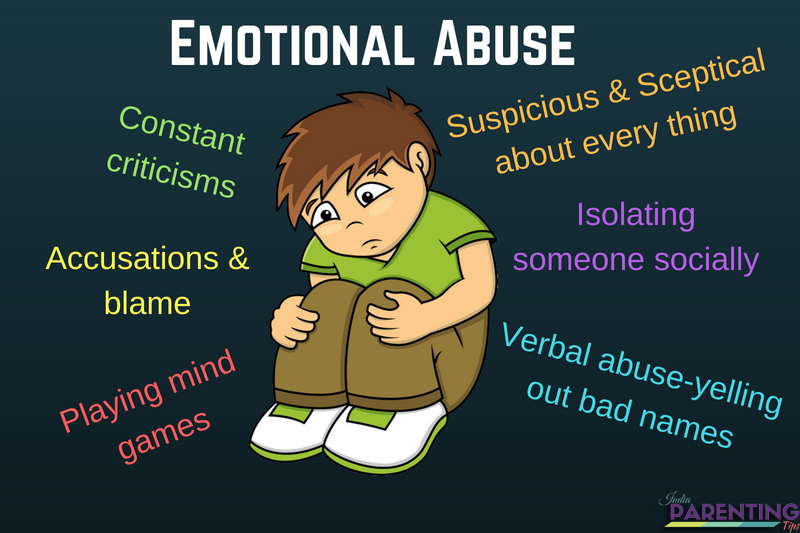 When misbehaving, shame the child, but remember that there should be a measure in everything.
When misbehaving, shame the child, but remember that there should be a measure in everything.
Problem at school Absolutely any child can become a victim of school bullying. The likelihood of this is greatly increased if he is calm, not too active and sociable. His offenders can be class leaders, aggressive children who have found a victim for self-affirmation or who always strive to be in the spotlight.
A child will always tell about psychological abuse if he trusts his parents. With a secretive nature, lack of trust in the family, the opposite situation is observed. The child does not share his experiences and problems with anyone. It is possible to guess that he became a victim of psychological violence at school. The presence of this problem is indicated by the following nuances:
the child does not want to go to school;
he doesn't talk about his classmates;
his things are sometimes torn or soiled;
The child returns home after school in a depressed state.
What to do if a child is abused during school
Psychological abuse of children at school is a problem that should be solved by parents together with the class teacher. The teacher, as a rule, is aware of everything that happens in the classroom. You can also talk to the mothers and fathers of the offenders. If a minor has been a victim of abuse for a long time, then the best way out is to change schools or temporarily transfer to home schooling.
If a child does not want to transfer to another school, then parents should give him some advice on how to deal with ridicule, insults:
who does this;
an effective way to deal with offenders is to show them that their unpleasant words do not hurt or upset at all;
in response to the insults of the offenders, you can simply laugh (if you demonstrate such behavior every time, then after a while, peers will simply become uninteresting in “poisoning” their victim).
Liability for child abuse in the Republic of Belarus
The legislation of the Republic of Belarus establishes several types of liability for persons who abuse a child.
